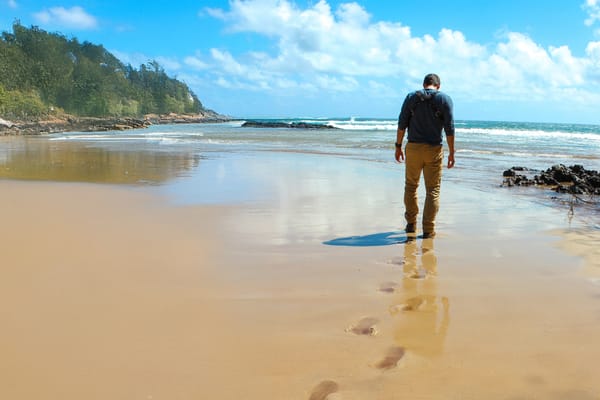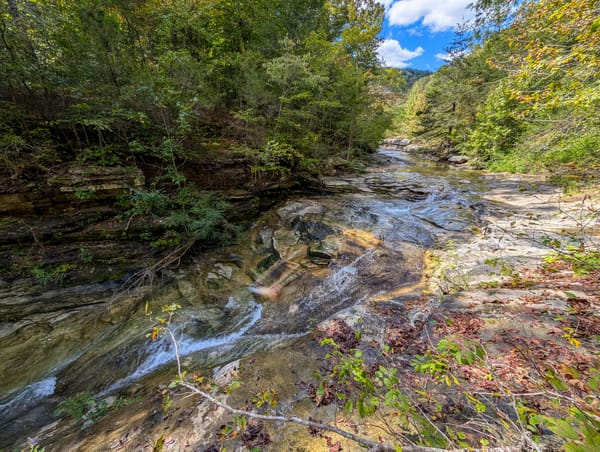Course: The Explorer's Path

Course Description
This course is designed to equip aspiring explorers with the foundational knowledge, essential skills, and strategic mindset required to plan, execute, and document expeditions, whether local or global. It covers everything from cultivating an explorer's spirit to mastering practical skills, understanding modern technology, and sharing their discoveries. This course is intended as a beginner course to teach aspiring explorers about the various career paths available to them. It will also provide them with options and scenarios to reflect on, to better understand themselves and their chosen path forward.
Target Audience
Individuals with a passion for adventure, discovery, history, and the unknown who wish to develop the skills and knowledge to become competent explorers.
Course Structure
Module 0: What Kind of Explorer Are You?
- Topic 0.1: Introduction to Different Explorer Archetypes (e.g., The Adventurer, The Scholar, The Documentarian, The Naturalist, The Treasure Hunter)
- Topic 0.2: Self-Assessment: Identifying Your Explorer Archetype (Interactive Quiz/Questionnaire)
- Topic 0.3: Understanding How Your Archetype Can Shape Your Exploration Journey
Module 1: The Explorer's Mindset & Foundations
- Topic 1.1: Defining Exploration in the 21st Century
- Topic 1.2: Cultivating Curiosity, Resilience, Observation Skills, and a Spirit of Adventure
- Topic 1.3: Learning from the Greats: Historical Explorers and Their Legacies
- Topic 1.4: Setting Your Personal Exploration Goals
Module 2: Essential Skills for Every Explorer
- Topic 2.1: Navigation and Orienteering: Mastering Maps (Topographic, Digital), Compass, GPS, and Natural Cues
- Topic 2.2: Wilderness First Aid & Emergency Preparedness: Essential Kit, Handling Common Injuries, Emergency Communication
- Topic 2.3: Core Survival Skills: Shelter Building (Natural and Improvised), Fire Craft (Various Methods), Water Procurement & Purification, Identifying Edible/Harmful Plants (Basic Introduction)
- Topic 2.4: Physical Fitness and Conditioning: Tailoring Training for Different Expedition Types
Module 3: Planning Your Expedition
- Topic 3.1: Research and Planning: Gathering Intelligence (Online, Libraries, Local Contacts), Feasibility Studies, Route Planning
- Topic 3.2: Expedition Logistics: Transportation, Accommodation (where applicable), Permits, Visas
- Topic 3.3: Budgeting, Fundraising, Crowdfunding, and Sponsorship for Your Adventures
- Topic 3.4: Comprehensive Risk Assessment, Mitigation Strategies, and Contingency Planning (including communication plans and emergency contacts)
Module 4: Gear, Technology, and Fieldcraft
- Topic 4.1: The Modern Explorer's Toolkit: Essential Gear Deep Dive (Clothing systems, Shelter options, Packs, Tools, Cooking systems, Water filtration)
- Topic 4.2: Specialized Equipment for Diverse Environments (e.g., Jungle, Desert, Arctic, Mountain, Underwater - specific gear considerations)
Module 5: Documenting and Sharing Your Discoveries
- Topic 5.1: Effective Field Notes: Journaling, Sketching, and Data Collection Techniques (Scientific and Observational)
- Topic 5.2: Expedition Photography & Videography: Understanding Camera Functions
- Topic 5.3: Pencil Sketching and Other Manual Recording Methods: Capturing Details and Impressions When Technology Fails or is Inappropriate
- Topic 5.4: Crafting Your Narrative: Storytelling for Impact (Written, Visual, Oral), How to engage an audience.
- Topic 5.5: Sharing Your Journey: Blogging, Social Media Strategies, Vlogging, Public Speaking, Academic Publication, Citizen Science Contributions
- Topic 5.6: Data Management and Archiving: Ensuring Your Discoveries Are Preserved and Accessible
Module 6: Specialized Exploration Paths (Overview & Introduction)
- Topic 6.1: Archaeological and Historical Site Exploration
- Topic 6.2: Cave Exploration (Spelunking/Caving) - Safety and Techniques
- Topic 6.3: Mountaineering and High-Altitude Exploration
- Topic 6.4: Underwater Exploration (SCUBA, Freediving, Marine Archaeology, Wreck Diving)
- Topic 6.5: Wildlife, Ecological, and Conservation-Focused Exploration (including tracking and remote observation)
- Topic 6.6: Urban Exploration (Urbex): Ethics, Safety, Legality, and Documentation
- Topic 6.7: Cultural and Anthropological Fieldwork: Respectful Engagement and Observation
- Topic 6.8: Investigating the Unexplained: Paranormal and Cryptozoological Exploration (Methodologies, evidence gathering, critical thinking, and debunking)
- Topic 6.9: Treasure Hunting: Research, Risks and Reality
Module 7: The Explorer's Impact and Future
- Topic 7.1: Inspiring Others: Mentorship, Education, and Sharing Knowledge
- Topic 7.2: Building a Career or Lifelong Pursuit in Exploration: Options and Realities
- Topic 7.3: The Future of Exploration: New Frontiers (e.g., Space, Deep Sea) and Evolving Technologies
- Topic 7.4: Congratulations on discovering your calling





